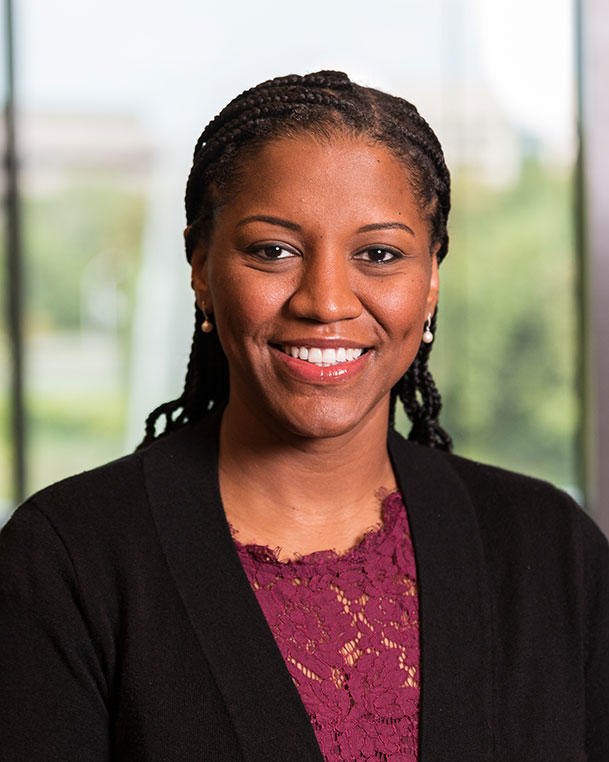Brittany Lord Selected as NIH Women Scientists Advisors (WSA) Scholar
, by Jennifer K. Loukissas, M.P.P.
Brittany Lord, Ph.D., M.P.H., M.S., postdoctoral fellow in the Integrative Tumor Epidemiology Branch, was selected as one of three NIH Women Scientists Advisors Scholars and presented her research at the WSA Symposium in April. Her talk was entitled “deciphering socio-environmental risk factor biology in breast cancer disparities."
WSA Scholars are selected from a pool of all the female FARE award (Fellow Award for Research Excellence) winners, by a panel of WSA institute representatives. The FARE award honors outstanding scientific research performed by intramural postdoctoral fellows.
Excerpt from the IRP at NIH Blog
Growing up in Charleston, South Carolina, Brittany personally witnessed the tragic effects of cancer on her family and community, made all the more personal by the fact that African Americans like herself die from the disease at much higher rates than other groups. Listening to a genetic counselor who spoke to her high school science class one day, Brittany discovered an intense fascination for science that would eventually lead her to work that could reduce that racial health gap. She went on to earn a Ph.D. in genetics from the University of Georgia, where she first began investigating why different groups of people have such starkly different risks of developing cancer.
“I knew I had found my research calling once I started that work,” she says. “I was and am still very passionate about lowering the cancer mortality rate for Black men and women in this country.”
“Black women are 40 percent more likely to die from breast cancer than White women, a statistic that has remained stagnant for decades,” she adds. “I hope to contribute to a change in this narrative by identifying and understanding social and environmental risk factors that may differ between Black and White individuals in the U.S., as well as how those differences in risk factors can directly impact the biology of the tumor.”
As a postdoctoral fellow at NIH, Brittany is pursuing that goal under the mentorship of IRP senior investigators Stefan Ambs, Ph.D., M.P.H., and Gretchen Gierach, Ph.D., M.P.H., by examining how people’s neighborhoods affect a process called DNA methylation, which changes the behavior of genes. She specifically looks at a metric called neighborhood ‘deprivation,’ which combines a variety of measures that include the average income of a neighborhood’s residents and the proportion of its households that utilize public assistance and live below the poverty line. By linking research participants’ addresses to their neighborhoods, Brittany and her colleagues identified several cancer-related genes that are less methylated, and therefore function differently, in people from highly deprived neighborhoods. Sadly, but not surprisingly, her research has also found that Black people are much more likely to live in those neighborhoods than White people.
“This work is so important, as our environments contribute to our health so much,” she says. “It is imperative that any work in cancer disparities includes both the social and biological determinants, as they both contribute to the worse cancer outcomes experienced by Black people in the U.S. Our work can not only inform how cancer develops and why it is more aggressive for certain populations, but can also identify specific biological differences that can be leveraged when creating cancer treatments that work for all populations.”
After spending more than three years as a Cancer Prevention Fellow at the NCI, Brittany has learned a great deal from her mentors and colleagues, and she feels well-prepared to fulfill her goal of becoming an independent scientist after her fellowship ends. In addition to helping her career “blossom,” she says, working in the IRP has also allowed her to forge important relationships with her mentors and colleagues.
“I think my favorite part of this experience has been the connections I have been able to make with investigators at all levels, including the amazing trainees I get to work alongside every day,” she says. “I know the connections I have made here will carry on throughout my career.

